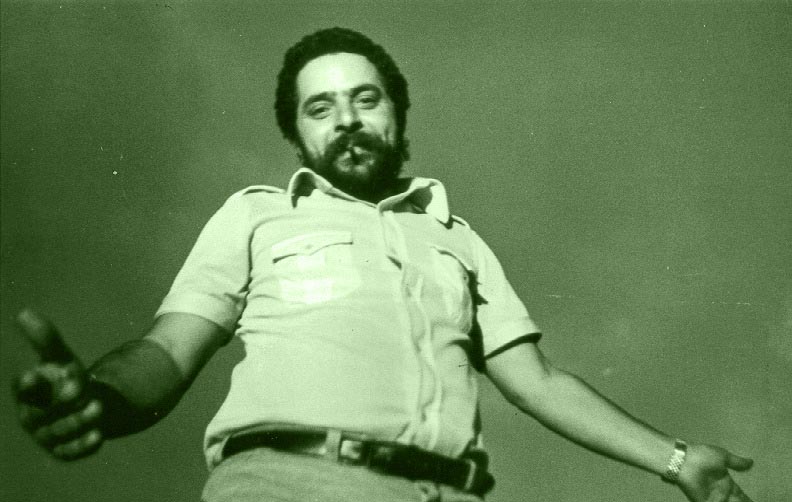by Mauricio Savarese. Original version published at A Brazilian Operating in this Area
In the end of 2002, former British PM Margaret Thatcher was asked at a dinner: “What was your greatest achievement?” Her answer was a shocking one: “Tony Blair and New Labour. We forced our opponents to change their minds.” Look at the three main contenders in Brazil’s presidential elections and a similar picture will be there. Brazilians have three main choices and all of them have a lot to do with former President Luiz Inácio Lula da Silva. Like him or not, he is Brazil’s most important voter and no one will win elections by being a critic of his legacy.
Before Lula took office, his party would lose election after election because their social platforms were seen as too expensive for a country where hiperinflation was seen as the main problem. Now, Brazil’s social programs are so important that even the opposition wants to make them permanent, put them in a proper amendment to the Constitution if needed. Although criticizing the benefits does get some Congressmen elected, no one holding a major job in the Executive can actually do it by being anti-Lula. Opposition members that are critical to the former president on the microphones will admit off the record that they like him.
[videoembed type=”youtube” url=”http://www.youtube.com/watch?v=k29smMLCXf4″]
Lula’s favorite and incumbent Dilma Rousseff might lose the elections, no doubt. But his social agenda is very likely to be untouched for a long, long time — so have said opposition’s Marina Silva and Aécio Neves. That alone keeps the former president as a competitive and likely candidate for the 2018 elections. If Rousseff wins, a lot of it will be credited to her mentor. If she loses, those who insisted Lula should have been the candidate this time will be even stronger in the Worker’s Party (PT in Portuguese). The man himself has already said the opposition should worry because he will be healthy in 2018.
Neck to neck with Rousseff, Marina Silva is a former Lula minister who stayed in the job despite all corruption scandals involving the Worker’s Party and Lula’s administration in the first term. Her most compelling political ad so far shows her making a strong defense of Bolsa Família, Brazil’s most important social program. Some Brazilians call her “Lula in a skirt” since she embodies two opposing traits that make a very strong candidate in Brazil: she is seen as a woman who is strong and weak at the same time (spin doctor João Santana calls it quite vulgarly by the “fodão fudido” persona. Besides, she has already promised to stay on the job for just one term.
[videoembed type=”youtube” url=”http://www.youtube.com/watch?v=gmGz0YXBrDU”]
Although he is lagging behind in the polls, Neves is Lula’s closest friend in the biggest opposition party, the Brazilian Social Democracy Party (PSDB in Portuguese). After the votes for kickbacks mensalão scandal in 2005, Lula fostered the idea of creating a new political party with Neves and Eduardo Campos — the candidate that died in a jet crash and put Marina Silva back in the campaign trail. The new political party would be a moderate one that brought together politicians that were allegedly tired of the polarization between the PT and PSDB — a platform that is currently used by Marina Silva. The party didn’t come out, but Neves and Lula remain friends.
In 2010 some of that spirit was already there. Opposition’s José Serra avoided taking swipes at Lula untill the very end, although he was much more critical to the federal administration than Neves ever was. With Lula approval ratings at about 80%, the PSDB candidate ruled against upfront attacks. He even made a political ad in a make believe favela, with a samba group singing “when Lula da Silva is out, I want Zé (informal nickname for José) up there”. Marina Silva was also very cautious then and praised Lula’s social policies at the same time she defended economic reforms promoted by PSDB’s Fernando Henrique Cardoso — a defense Serra didn’t make.
Part of the criticism for Rousseff’s no more than average performance — that’s what Brazilians say in the polls — should clearly belong to Lula. Her first two years in office were blurred by corruption allegations involving politicians appointed by Lula or his allies. Brazil’s sluggish economic figures have a lot to do with mistakes noticed in 2009 and 2010 — creative accounting, heavy public investments in faulty companies like those of former billionaire Eike Batista and mismanagement at oil giant Petrobras. But his policies and political muscle have made the opposition change their minds about what Brazil needs.
[videoembed type=”youtube” url=”http://www.youtube.com/watch?v=g2vMSBBzbRY”]
That is a rock solid win for a man who, no matter who wins this time, will have a friend in the Palácio do Planalto and an enduring legacy that no one will be bold enough to dismantle in the next few years. And when that actually happens, it won’t be by challenging his achievements; it will be for reshaping his policies just like New Labour did to Thatcherism. Doubts will remain on whether Lulism will actually outlive Lula. Hints so far say yes.

